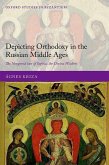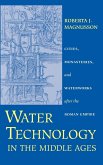High Quality Content by WIKIPEDIA articles! Scientific activities were carried on throughout the Middle Ages in areas as diverse as astronomy, medicine, and mathematics. Whereas the ancient cultures of the world had developed many of the foundations of science, it was during the Middle Ages that the scientific method was born and science became a formal discipline separate from philosophy. There were scientific discoveries throughout the world, as in the Islamic world, in the Mediterranean basin, China and India, while from the 12th century onwards, the scientific development in Western Europe began to catch up again. The Byzantine Empire, which was the most sophisticated culture during the early middle ages, preserved the systems and theories of science, mathematics, and Medicine of the Greco-Roman period. The works of Aristotle, Archimedes, Galen, Ptolemy, Euclid, and others spread through the empire. These works and the important commentaries on them were the wellspring of science during the Medieval period.
Bitte wählen Sie Ihr Anliegen aus.
Rechnungen
Retourenschein anfordern
Bestellstatus
Storno








